Business Pros Expose the Important Lessons They Learned From Their Very First Jobs
By Brianna Flavin on 01/30/2017
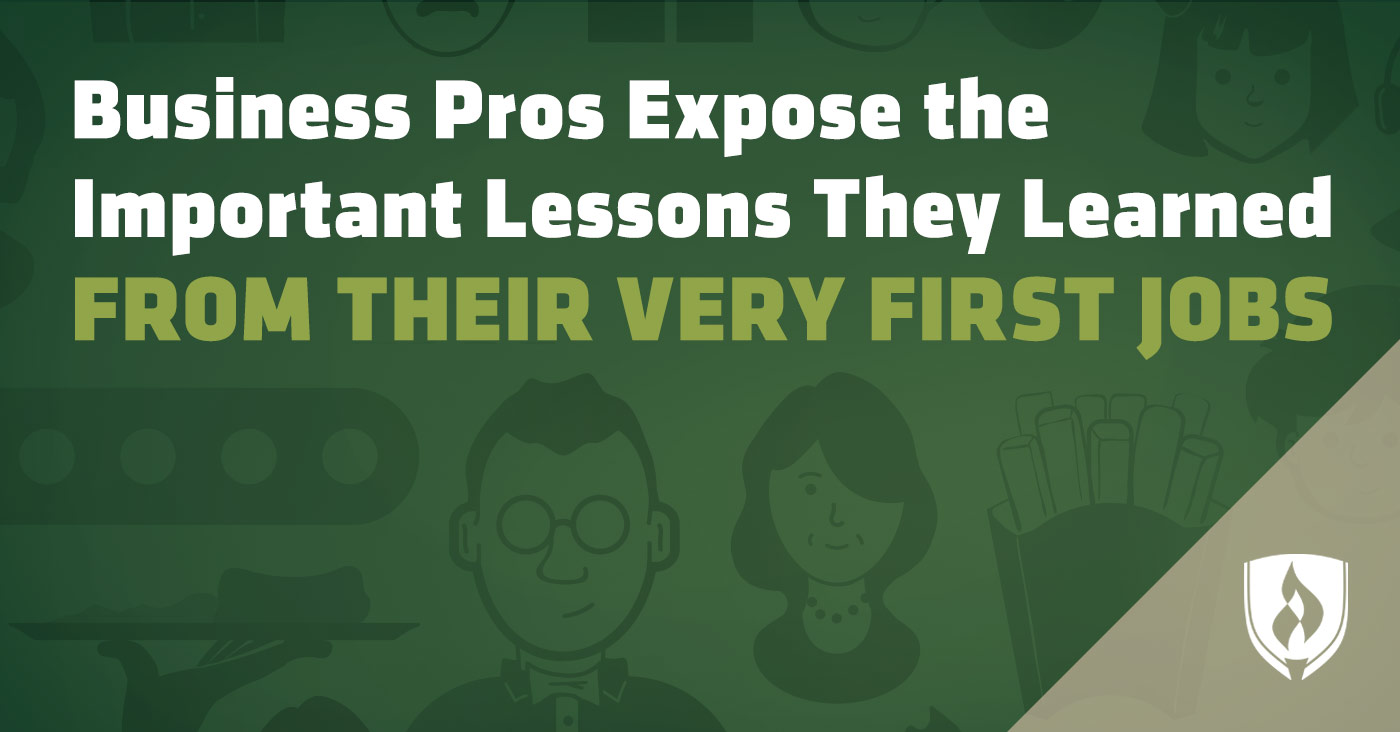
First jobs are seldom glitzy, glamorous or fun. But every career path has to start somewhere. That’s why it’s important to realize every first job is a chance to develop skills future employers will be seeking.
And remember: even the most successful business moguls had to get their start somewhere. To prove this, we enlisted six high-ranking CEOs to share the important lessons they learned from their own first jobs.
As you read their insight, remember that every position can be a marketable learning experience—it’s all about perspective. These experts show how a slight shift in your mindset can be the difference between having a basic first job and building the foundation of your future career.
6 common first jobs and the skills they build
1. Working at a restaurant
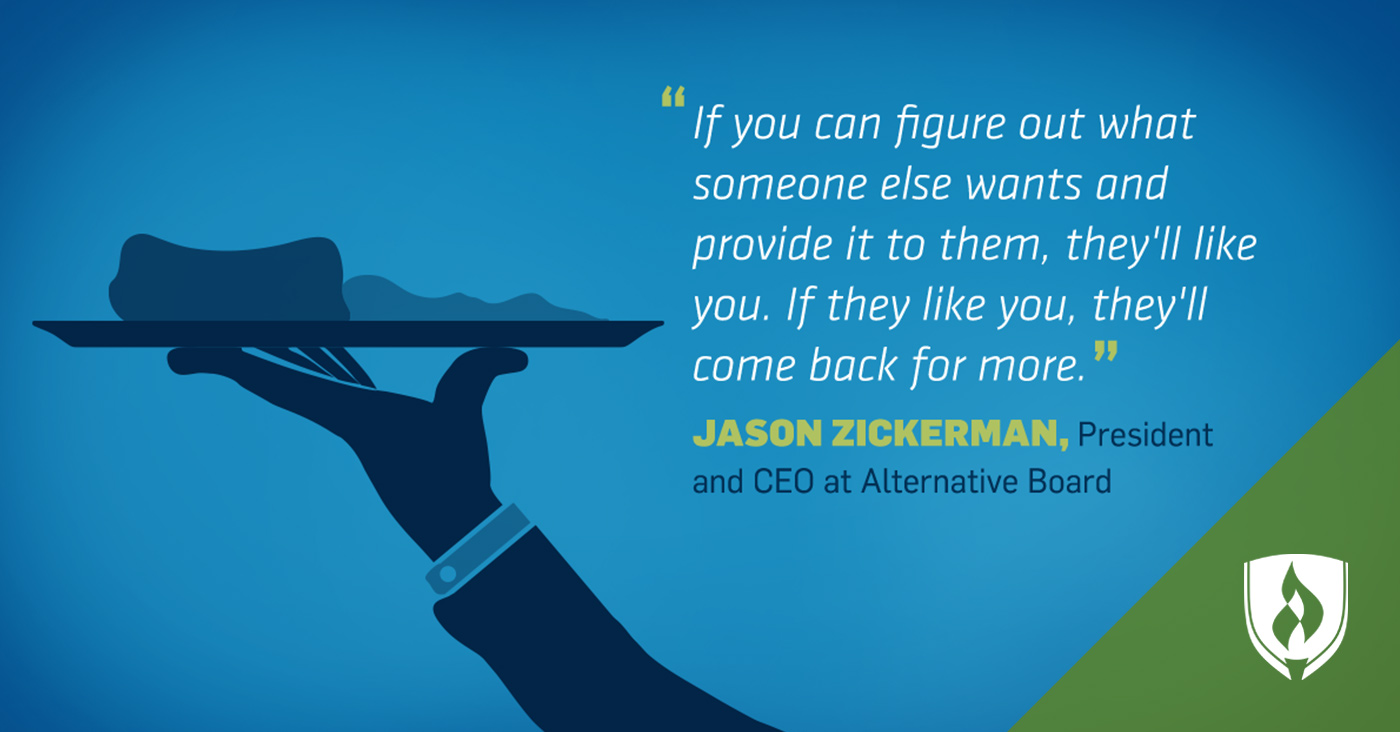
Lunch and dinner rushes, the heat and chaos of the kitchen and the occasional broken dish—restaurant work can be thankless. But building rapport with your customers can impact more than just your tips.
“I spent much of my younger years in the restaurant business,” says Jason Zickerman, president and CEO at Alternative Board. “I wouldn’t give that experience back because of what it taught me about how to succeed in business.” He adds that restaurant work does a great job of teaching you to read body language and navigate personality types. “There’s nothing you can do in business where these things aren’t of paramount importance.”
Zickerman explains that business professionals need to understand their customers, not just hear what they say. Working to earn tips forces you to think beyond your job description and do whatever you can to create an incredible experience.
Skills it builds:
- Communication
- Customer service
- Attention to detail
- Interpersonal skills
2. Working in fast food service
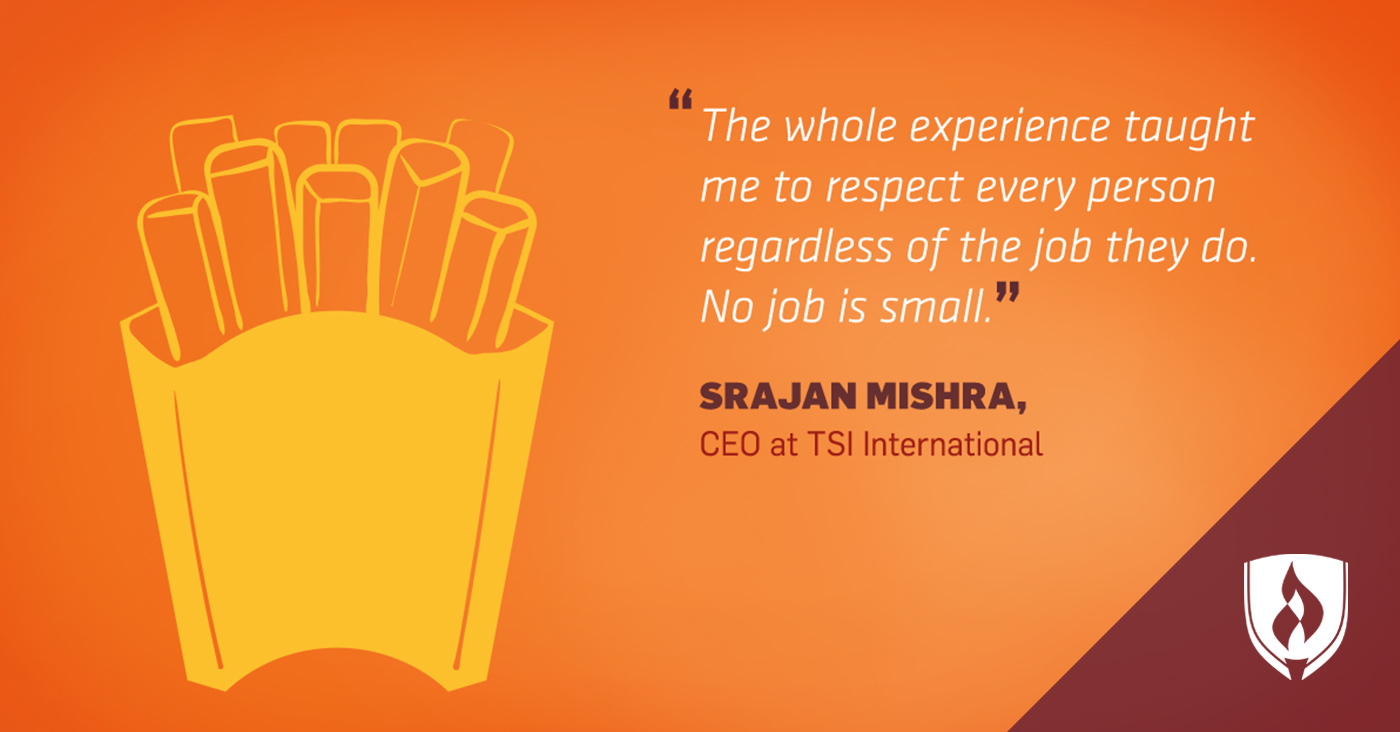
Lightning speed is the expectation if you work in the fast food industry. Employees tend to work in cramped conditions, shoulder to shoulder with their coworkers as they face a steady stream of customers. Staying precise, speedy and friendly in this environment builds a special skillset.
“As a teen, my first job was as a cleaner in a fast food restaurant,” says Srajan Mishra, CEO of TSI International. “I needed to interact with all kinds of people, even those who were extremely rude to me.” He says the expectation to respond graciously to everyone builds your ability to navigate tough situations with determination and a smile.
Mishra recalls being required to work long shifts doing physically demanding work, which helped him attain the drive and work ethic he uses to run his business today. He adds that to be successful in any business, it’s vital to work hard and get your hands dirty. “It takes a lot of time, effort and perseverance,” he says.
Skills it builds:
- Active listening
- Service orientation
- Communication
- Monitoring
3. Working in a call center
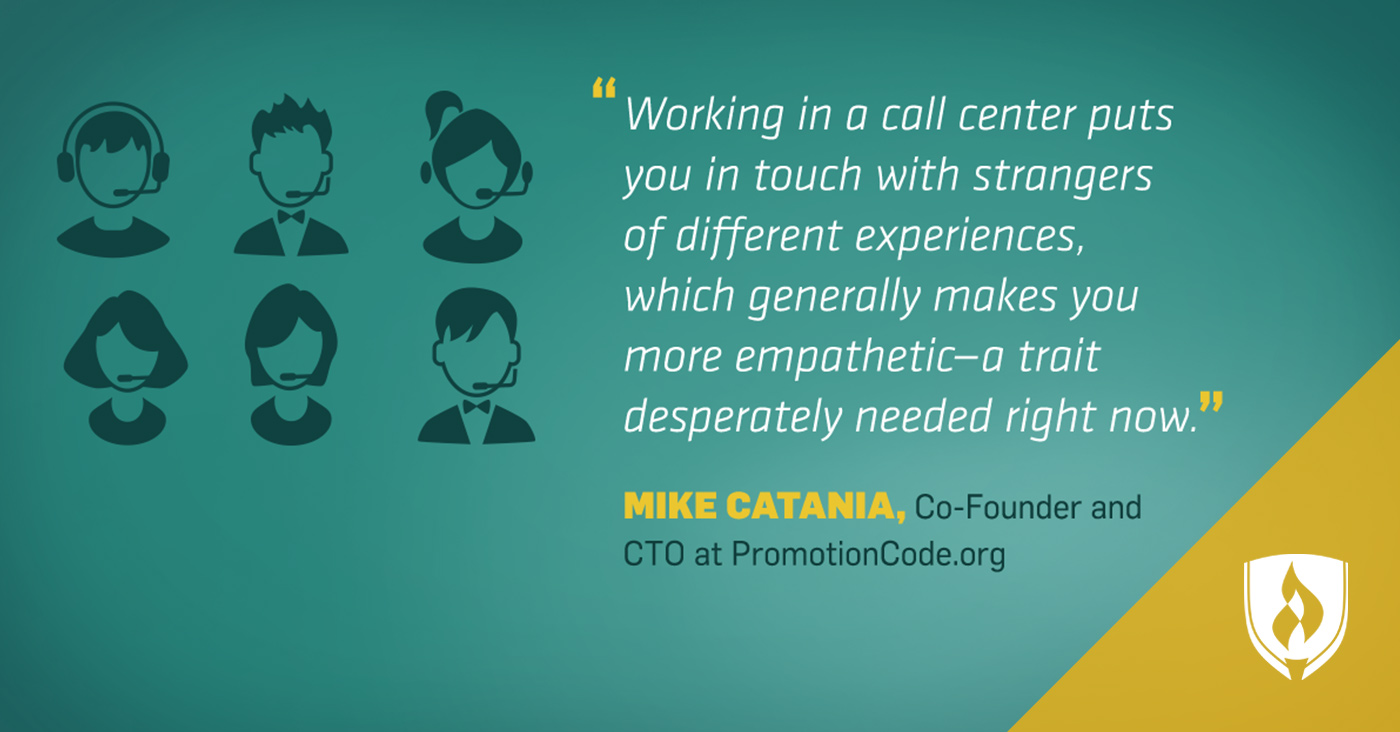
Nestled amongst identical cubicles and tasked with assisting strangers on little more than a script, a telephone and lots of patience, call center employees could see their work as less-than-humanizing. But the truth can be quite the opposite.
“I worked in a tech support call center while I was in college,” says Mike Catania, co-founder and CTO at PromotionCode.org. “It was a tedious and thankless job but there were some excellent lessons.” He explains that we tend to self-select the people in our lives once we graduate high school, which puts us out of touch with those who differ from us.
“Working in a call center pushes you back into the fold,” Catania explains. “Even topical conversations with other people round you out as a person.” And at a call center, you don’t only talk to people with experiences and personalities all across the board—you have to assist them as well. This taught Catania a valuable skill: you have to communicate concisely.
“In a business setting, if you can articulate something quickly and accurately, that’s always going to be received more positively than an overly verbose statement that might focus more on demonstrating what you know instead of what the other person needs to hear,” Catania says.
Skills it builds:
- Problem solving
- Interpersonal skills
- Listening
- Patience
4. Working as a cashier
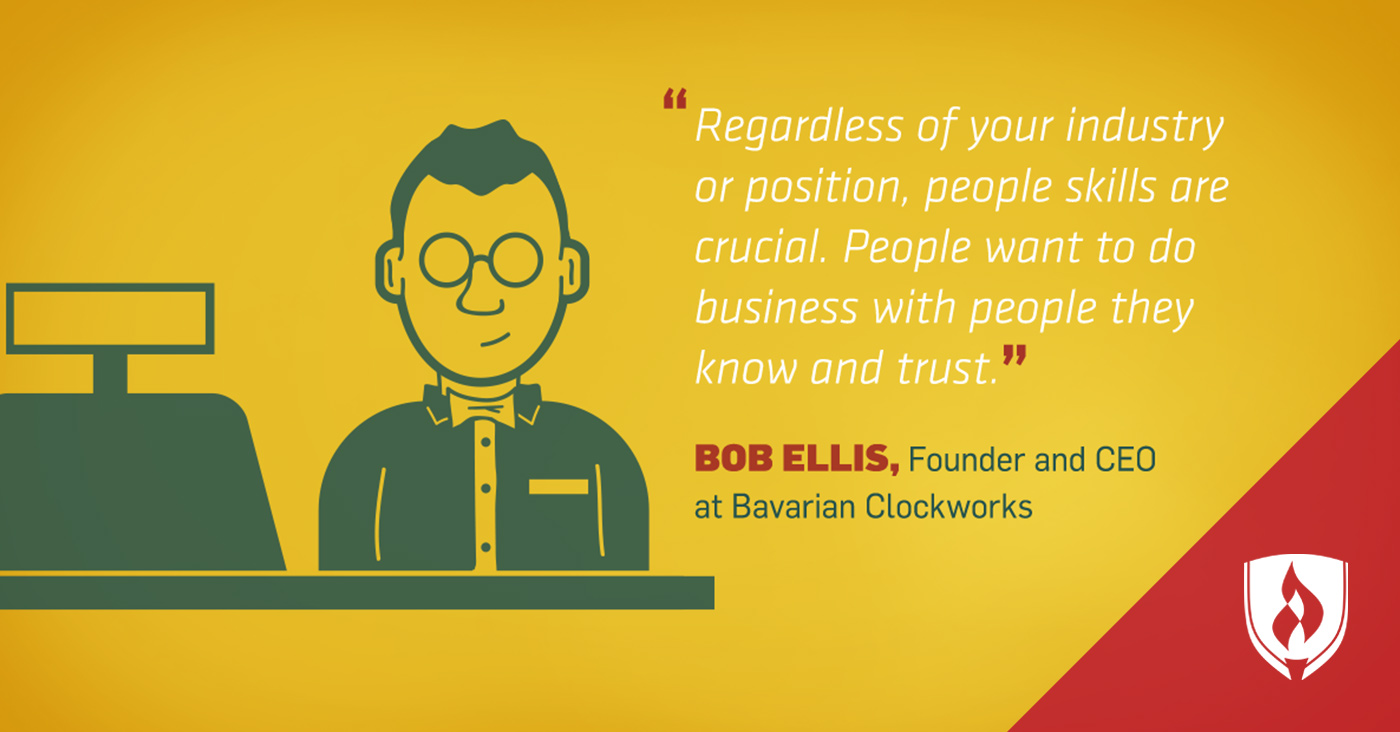
Cashiers face a never-ending battle to ensure lines at the register don’t get too long. But don’t let the pressure to get anxious shoppers out the door eat at your attitude. The job still boils down to people—even if only for a few minutes per customer.
“My first job was as a cashier in a grocery store,” says Bob Ellis, founder and CEO of Bavarian Clockworks. “Even to this day, the customer service skills I learned in my first job have proven valuable for developing a cohesive team at my own company and building relationships with our clients.” Ellis emphasizes the importance of building relationships with people in an effort to truly know who you work with.
“It’s unlikely your first job will be a home run,” Ellis says. “However, if you are around hard-working, positive people, you are going to learn new skills and have a more rewarding experience.” He adds that the people you work with can have a profound impact on your professional growth and personal happiness.
Skills it builds:
- Communication
- Customer service
- Integrity
- Patience
5. Working in a warehouse
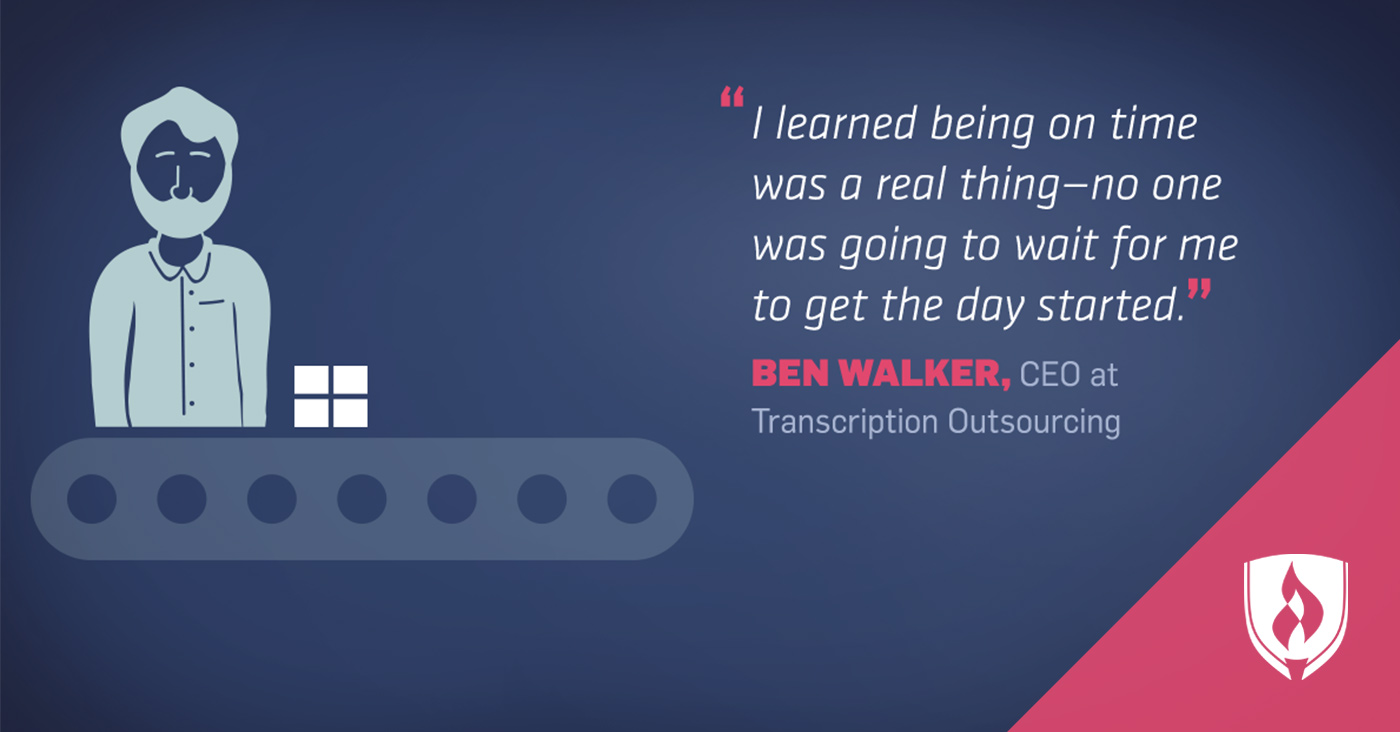
Working around the clock to help supply chain hubs run more smoothly can be exhausting and even monotonous. That’s why it’s easy to forget the importance of true efficiency and reliability.
“My first job was in a warehouse where we sent out a few hundred thousand pieces of mail a month,” says Ben Walker, CEO at Transcription Outsourcing. “Over time it taught me that no one was going to do my job for me. I had to be on time and do my duties or I was going to be fired.” Walker paid close attention to how the warehouse systematized every job, as well as the resulting growth and success.
When every role has been optimized to ensure the best results, each employee needs to “show up,” not only physically, but also mentally. When employees see these efforts pay off, the system can be effective.
Walker says his experience has helped him systematize things in his current company as they prepare for growth. He believes emphasizing efficiency begins on the ground floor. “You have to have things set up to be as seamless as possible.”
Skills it builds:
- Active listening
- Accountability
- Coordination
- Time management
6. Working as a babysitter
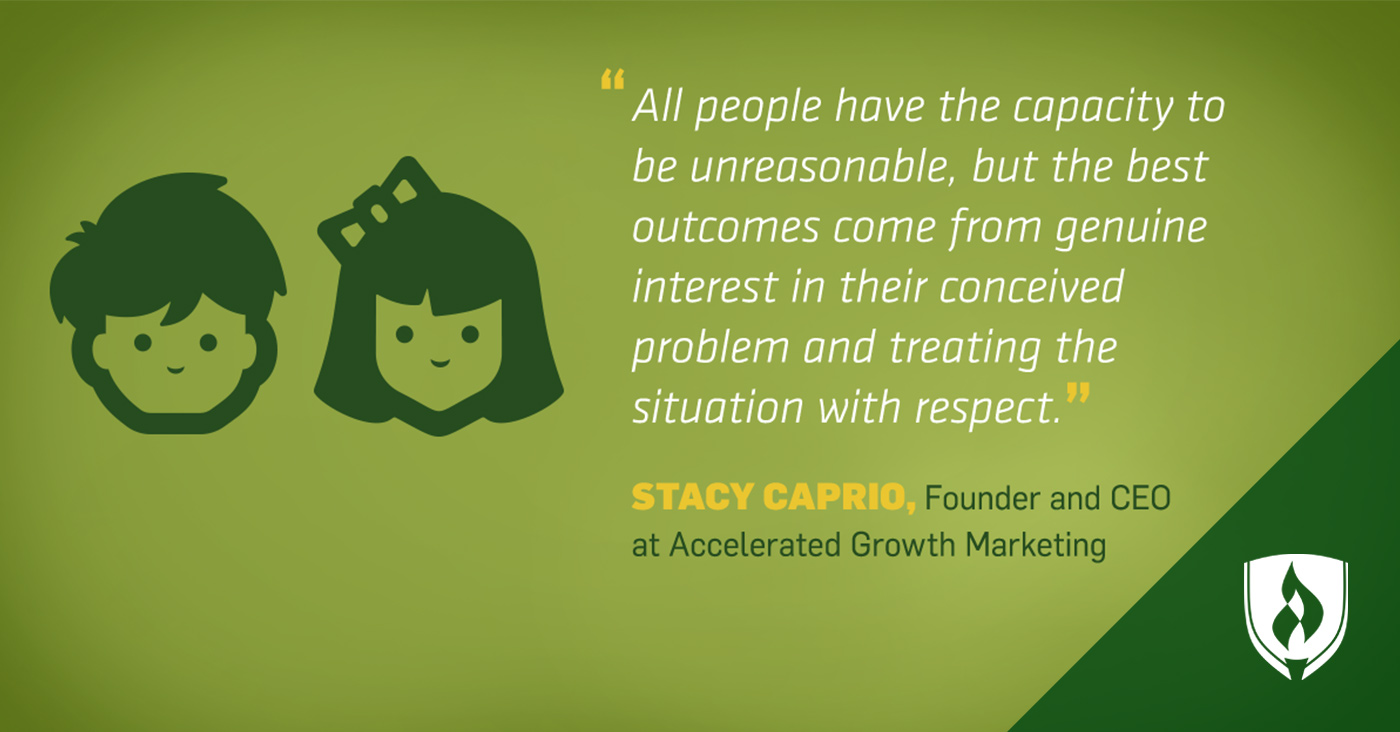
Can you imagine a more irritable client than a 5-year-old? Working with kids is a demanding way to make a living. Now add in the varying demands of parents and safety and things get a lot more complicated. But those interpersonal hurdles can lead to some serious people skills.
Babysitting can help you acquire great scheduling and time management skills, according to Stacy Caprio, founder and CEO at Accelerated Growth Marketing. But the most important takeaway relates to people.
Though we tend to expect more from adults, Caprio points out that even adults operate from less-than-logical ideas sometimes. “Similar to a young child who might lock themselves in the bathroom and scream about a non-existent spider,” she explains.
But Caprio emphasizes that while you could argue all day about why people shouldn’t be scared of imaginary spiders, the best course of action is to see the situation from the other person’s perspective.
Skills it builds:
- Decision making
- Instructional skills
- Responsibility
- Patience
Every experience matters
As you can see, it’s in your hands to get more than just a paycheck out of your first job. Someone with true business sense will look back on previous work experience to appreciate the transferable skills they developed early on. And those skills might be a bigger deal than you realize.
Now that you’re aware of some of the valuable skills you didn’t realize you already had, be sure to leverage them in your next opportunity. Not sure what that next opportunity is exactly? Check out our Career Aptitude Test to determine which careers could capitalize on your pre-existing skills and experience.
RELATED ARTICLES:
- What Should I Study in College? Experts Advise How to Narrow it Down
- Your Digital Footprint: What Is It and How Can You Manage It?
- 6 Amazing Jobs that Let You Make a Difference in the World
- Bytes to Boardrooms: 6 Technology Skills that Are Valued in Business
- Nightmare on Wall Street: 9 Notable Stock Market Crashes Throughout History
- 12 Facts to Consider About the BIG Benefits of Small Businesses
- 8 Best Technology Jobs for Business-Savvy Professionals




